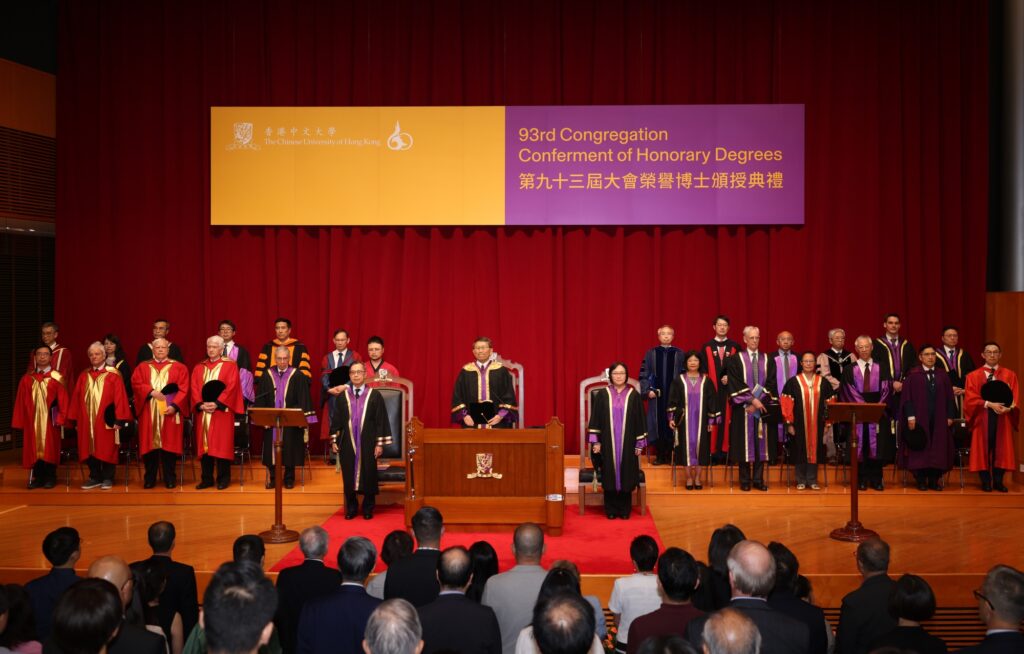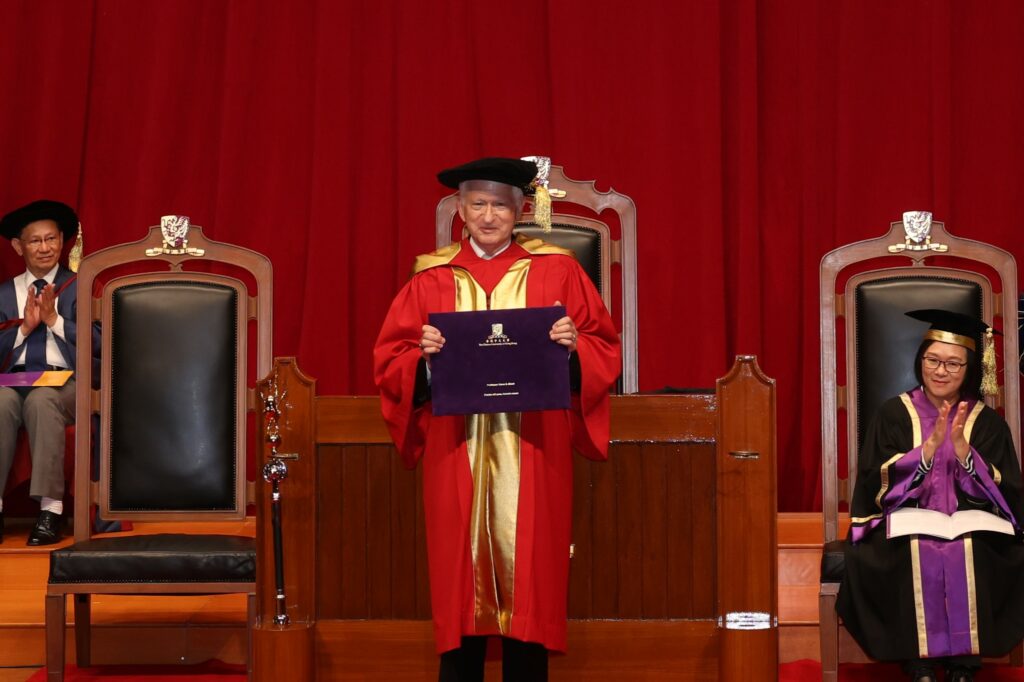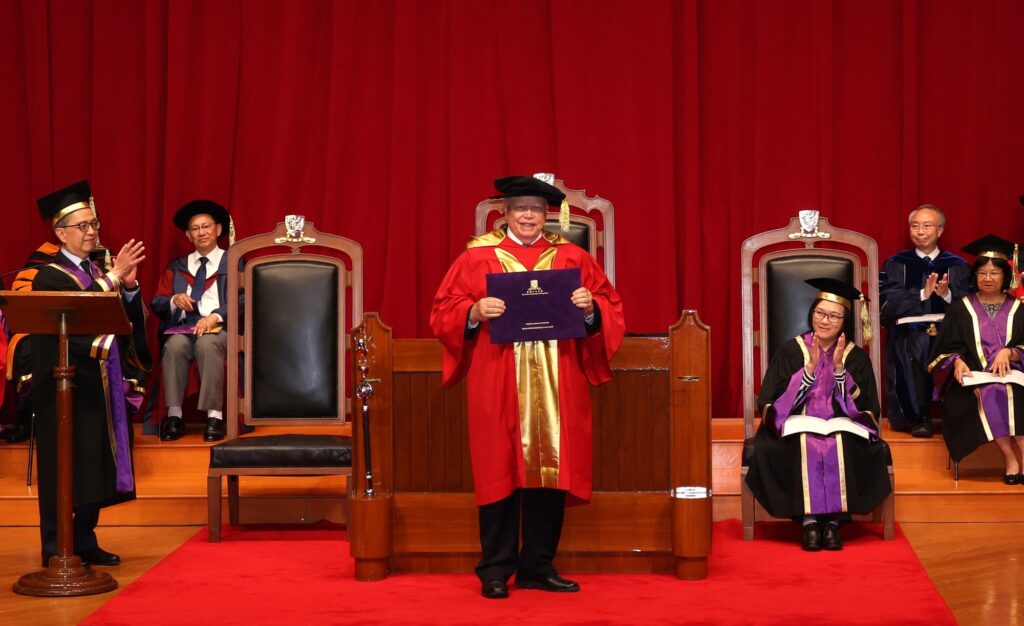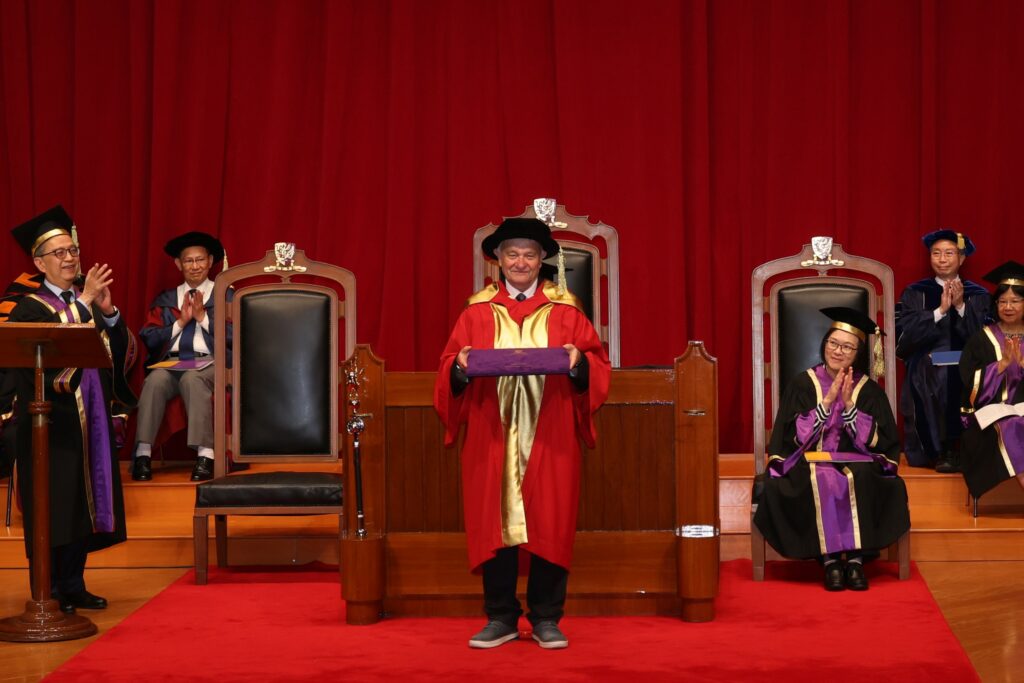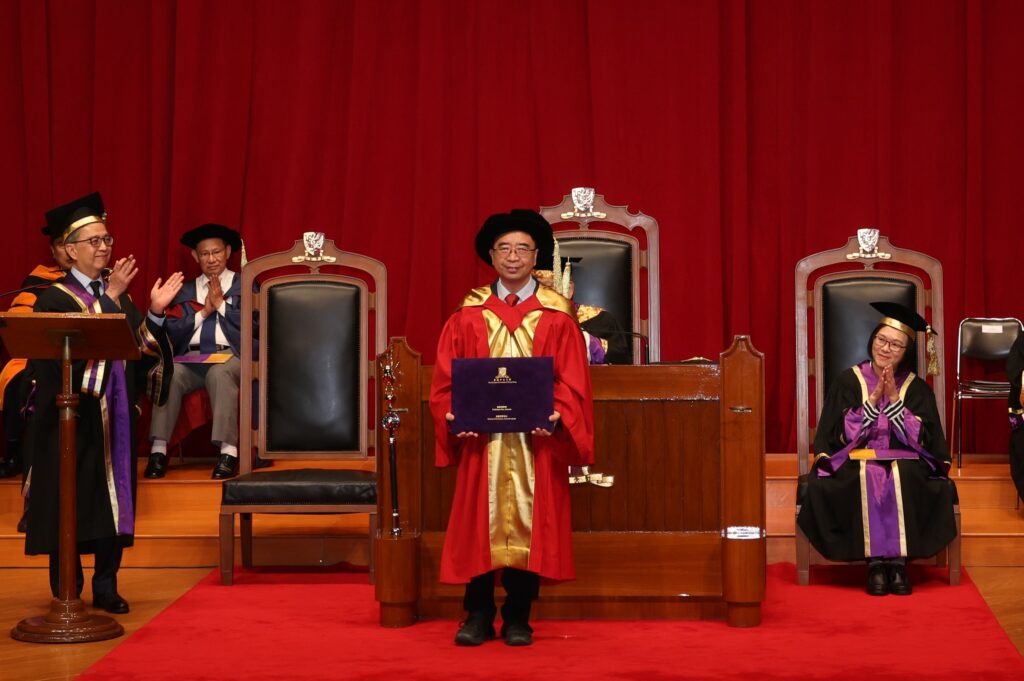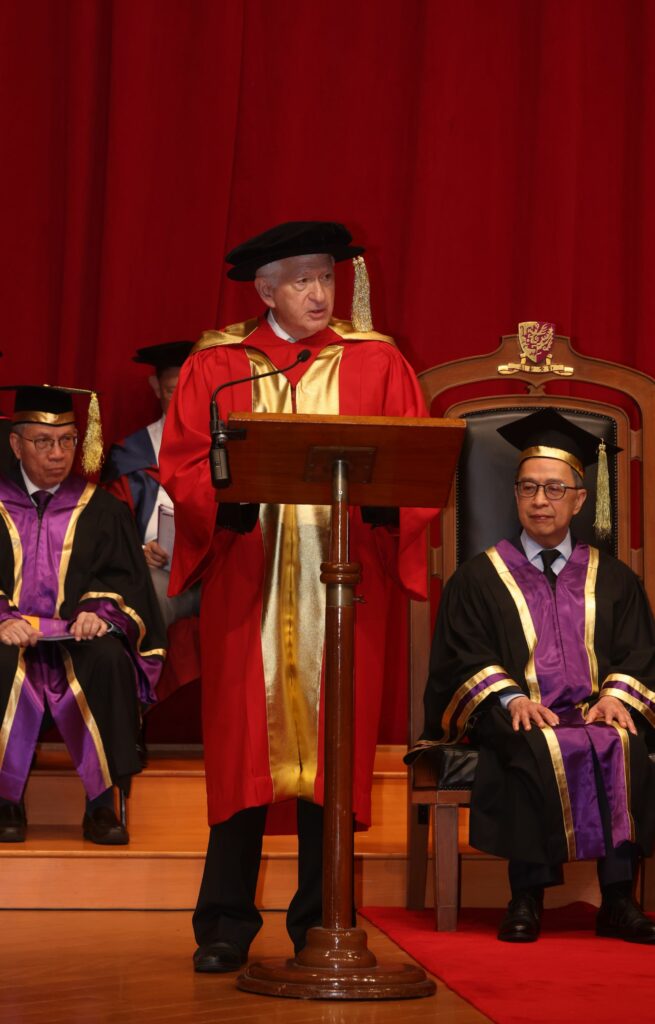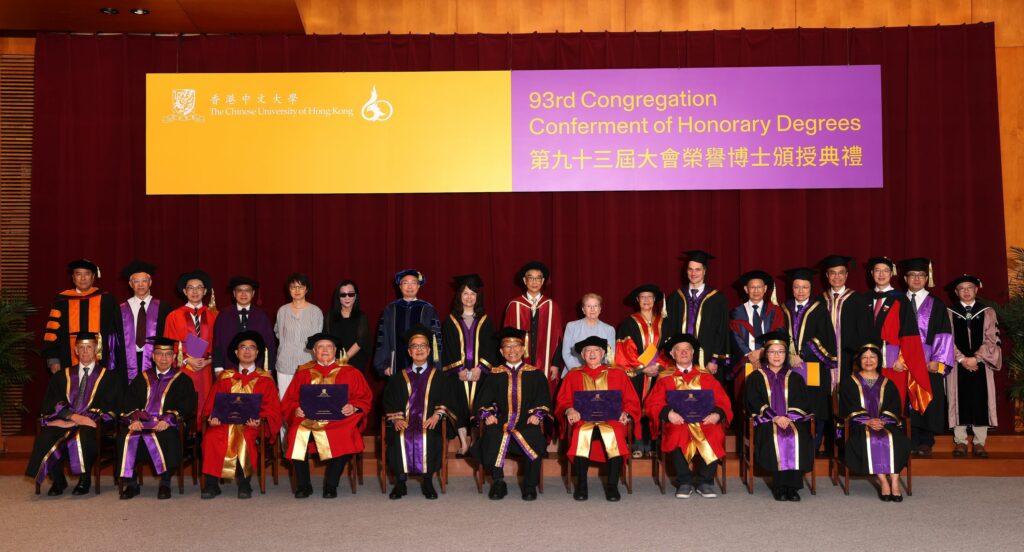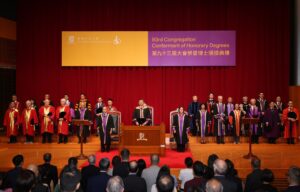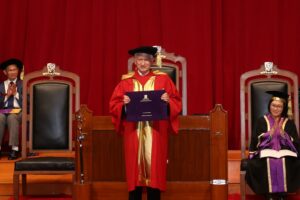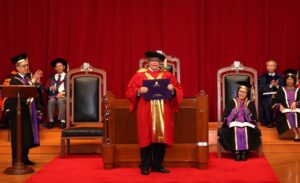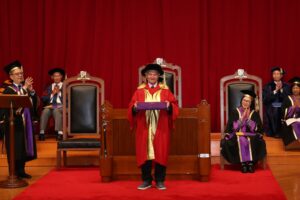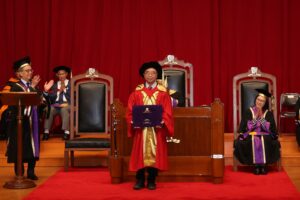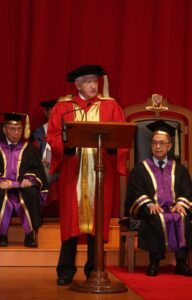CUHK
News Centre
CUHK awards Honorary Doctorates to four distinguished persons
The Chinese University of Hong Kong (CUHK) conferred honorary doctorates upon the following four distinguished persons at the 93rd Congregation for the Conferment of Honorary Doctoral Degrees today (20 June), in recognition of their outstanding contributions in their respective areas of achievement in public higher education, fighting social inequality and scientific research. They are:
|
Name |
Honorary Degrees awarded |
|
Professor Gene D. Block |
Doctor of Laws, honoris causa |
|
Professor James J. Heckman |
Doctor of Social Science, honoris causa |
|
Sir Paul M. Nurse |
Doctor of Science, honoris causa |
|
Professor Pan Jianwei |
Doctor of Science, honoris causa |
(Surname in Alphabetical Order)
Professor Gene D. Block
Professor Gene D. Block, Chancellor of the University of California, Los Angeles (UCLA), is a globally respected leader in higher education. Throughout his 17-year tenure, UCLA has prioritised academic excellence and maintained its position as the highest-ranked public university in the US for seven years. Under Professor Block’s leadership, UCLA has devoted itself to civic engagement, diversity, and increasing access to public higher education for traditionally underprivileged students. Professor Block has led the university to address other challenges in his role, setting two “Grand Challenges” for UCLA to connect research to the greater good. These include the Sustainable LA initiative to transform the City of Los Angeles into a model green megacity and the Depression Grand Challenge which aims to prevent and treat depression.
In addition to his role of leading a large institution with significant social impact, Professor Block continues his groundbreaking research and teaching. He is currently researching the effects of ageing on the nervous system and how it impacts biological timing in mammals. During Professor Block’s leadership, CUHK has become one of UCLA’s international partners, and the two universities have engaged in extensive research, student and faculty exchange. In recognition of his outstanding contribution to public higher education and the wider public good, CUHK conferred upon Professor Block the degree of Doctor of Laws, honoris causa.
Professor James J. Heckman
Professor James J. Heckman is the Henry Schultz Distinguished Service Professor of Economics at the University of Chicago. His work on the microeconometrics of diversity and heterogeneity within populations, and establishment of a sound causal basis for public policy evaluation, has earned him acclaim in sharing the Nobel Prize in Economics in 2000. Renowned as a leading champion of early childhood education and development, Professor Heckman has calculated that the return on public investment in this area can be as much as 14 percent. This has significantly influenced the elevation of pre-school education’s status globally, including the implementation of corresponding education reforms in Hong Kong. He is also dedicated to developing scientific methods for evaluating economic policies to provide a basis for governments’ public policy formulation. The Nobel Prize is just one of numerous awards he has received. His significant contributions are also acknowledged by the Dan David Prize, the Frisch Medal, the Chinese government’s prestigious Friendship Award, and more.
Professor Heckman is now the Distinguished Professor-at-Large at CUHK, sharing his expertise with the CUHK community. He is dedicated to promoting exchange and collaborations between CUHK Lau Chor Tak Institute of Global Economics and Finance and the University of Chicago’s Center for the Economics of Human Development. CUHK conferred upon Professor Heckman the degree of Doctor of Social Science, honoris causa for his profound influence on global policymaking and philanthropy in supporting the underprivileged.
Sir Paul M. Nurse
Sir Paul M. Nurse is a distinguished geneticist and cell biologist, celebrated for winning the Nobel Prize in Physiology or Medicine with two fellow scientists for their discoveries of “key regulators of the cell cycle” in 2001. He dedicates his life to resolving the mysteries of developmental biology, especially the “cell cycle” (how cells divide and reproduce) and the molecular changes during this process. In 1976, he discovered the key controller of the yeast cell cycle, the cdc2 (cell division cycle 2) gene, and subsequently identified the corresponding gene, cdk1 (cyclin dependent kinase 1), in humans. As uncontrolled cell proliferation may lead to cancer and other serious diseases, his fundamental discovery has profound implications for the field of cancer research. He received the Albert Lasker Award for Basic Medical Research in 1998 and was knighted in 1999 in the UK. In 2013, he received the Albert Einstein World Award of Science from the World Cultural Council.
Sir Paul M. Nurse is currently the Director of the Francis Crick Institute in London, Europe’s biggest biomedical laboratory, where he still actively contributes to cell research. CUHK awarded Sir Paul Nurse the degree of Doctor of Science, honoris causa for his commitment to medical science, education and humanity.
Professor Pan Jianwei
Professor Pan Jianwei is the Executive Vice-President of the University of Science and Technology of China, and the Director of the Chinese Academy of Sciences’ Center for Excellence in Quantum Information and Quantum Physics. As one of the pioneers in experimental research in quantum information, he has significant influence in the fields of quantum optics, quantum information, and quantum foundations.
Quantum communication overcomes the inherent security vulnerabilities of classical encryption techniques and is currently the only communication method with rigorously verified security. In order to push quantum communication technology towards practical applications, Professor Pan and his research team proposed the concept of long-distance quantum communication via satellites in 2003, initiating a series of pioneering experimental studies. In 2016, Professor Pan’s team successfully developed the world’s first quantum science experimental satellite, “Micius” and launched it into orbit, leading the way in conducting a series of groundbreaking space-based quantum science experiments. These experiments validated the feasibility of long-distance quantum communication between satellites and ground stations, laying important groundwork for a global quantum communication network.
Quantum computation can offer exponential acceleration for certain complex problems, representing a crucial direction for future computational breakthroughs with the potential to lead a new wave of technological and industrial revolution. Based on optical quantum manipulation technologies developed in quantum communication, in 2020, Professor Pan’s team constructed the optical quantum computing prototype “Jiuzhang” which surpassed the fastest classical supercomputers by a factor of one hundred thousand in processing specific problems. This achievement marked China’s first milestone in quantum computing research: quantum computational advantage.
Professor Pan’s research findings have brought him numerous honours including the International Quantum Communication Award, the Newcomb Cleveland Prize, the R. W. Wood Prize, the Micius Quantum Prize, the Zeiss Research Award, the National Prize for Natural Science Award (First Class), the Future Science Prize in Physical Science and others. CUHK awarded Professor Pan the degree of Doctor of Science, honoris causa in acknowledgment of his innovative scientific research and invaluable contributions to the nation and its people.


